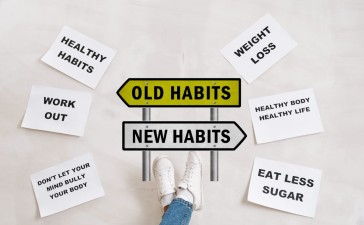If there’s one thing that is highly misunderstood, it’s addiction. People believe that it’s something that people choose, but it’s not. Sure, they pick the first sip of wine, but do you think that they would if they knew what could happen later on? Do you think that they would take a sniff of cocaine in a club if they understood how it could develop into a full-blown addiction? Of course, they wouldn’t even begin to experiment.
Drugs and alcohol are both things that people dabble with every day, and each time they take a drink or they smoke weed is a chance that they take for addiction to develop. When your friends are out partying too much, you soon notice. When they’re forgetting to go to work, or they’re so in the midst of an addiction that they go to work and use drugs there? That’s a problem. When they’ve then lost their job and have no way of holding onto their family? That’s a problem. Sure, most workplaces now insist on rapid drug testing, but it’s not always the case. You – as their friend – are ideally keeping an eye on them, seeing them for their strengths and weaknesses and are able to support them no matter what.
So, how do you spot addiction in your friends? And how can you help your friend to feel supported as they try to handle their issues? We’ve got a few suggestions for you below.
- Talk. Half of the problem is that people don’t talk about the problems that they are having. Addiction doesn’t happen because of no reason: there is ALWAYS a reason for it. We all want to talk, but we all have this annoying trait that no one wants to bother anyone with their problems. If you suspect that there is a problem, ASK. Speak up and get them to open up to you. Take them out for dinner and let them vent. Keep trying even if you’re shut down.
- Listen. As much as you talk to your friend, don’t judge. Don’t make them feel guilty for the addiction that they are caught up in. They cannot help it and they need you to listen to them and be a vault for their pain. Support them and trust that they want your help – even if they don’t say it out loud.
- Keep The Peace. Someone going through an addiction and subsequent rehabilitation is someone in pain. They need peace and you can help them to find that peace. Whether you babysit their kids or take their pets off their hands, they need to be peaceful in order to get better.
- Show, Not Tell. Friendship is deep and it takes some grit to support someone who is dealing with an addiction. It may be hard on you, but it’s harder for the person suffering. When you know they’re at their lowest and putting on a face, send a token of your love. Have flowers delivered, help them to a therapist and show them that you are thinking of them at all times.
- Help Their Environment. Someone in the middle of a low or a high doesn’t have time to clean, to cook. Their home could be a mess and unkempt. It could be peeling paint on the walls and they would not notice. You need to help their environment if you want to help them. Call in the professionals and get the whole house spotless from top to bottom. Clean the windows, do what you can to make their physical environment bearable while their feelings are not.
- Feed Them. Addicts burn through calories and they have a suppressed appetite. Fill your friend’s refrigerator with meals that they can heat, and make sure that you are calling and stopping by so that they get eaten and they stay healthy. Bless their family – include everyone – and make sure that they’re well fed. It’s a difficult time for the household, but you can help.
- Be Real. Ask your friend how they are, and mean it. It’s easy to ask in passing how they are, but you need to mean it. Be sincere and genuinely care about their feelings. If you are real with them, they can be real with you and tell you what they are coping with. Addiction can force their real personality away from the surface, but you know your friend. Your support changes their life – even if you don’t think it will.
- Be Honest. Honesty is so important for someone who is dealing with an addiction. Addiction steals away so many things, and when someone is in recovery, they need to know all of the truth about life happening around them. Speak only with honesty, and if they are getting out of control be honest about that, too.
- Recognize Red Flags. If your friend is starting to spiral, acting shady, lying about things in life or generally being dishonest, you need to tell them. Show them that you can see that they are hurting, offer your support and love and let them know that they are no longer alone.
Addiction is not helpless. You can be there to support someone that you love through some of the worst pain that they will ever go through. More than them, you can support their families and children, help them to keep their job and even get them into rehab when you can. Addiction is scary and it can ruin a life, but you cannot force someone to change on your word. You can, however, encourage and support at every available angle. Addiction isn’t hopeless; there is help and healing. You can never aim to fix, only to help and offer your loved one hope at every turn.
You can get your friend on the right track. Understand their addiction and the rocky road that they face, then take their hand and walk it with them. They will lean on you, and you can hold them up when they can’t do it for themselves.






